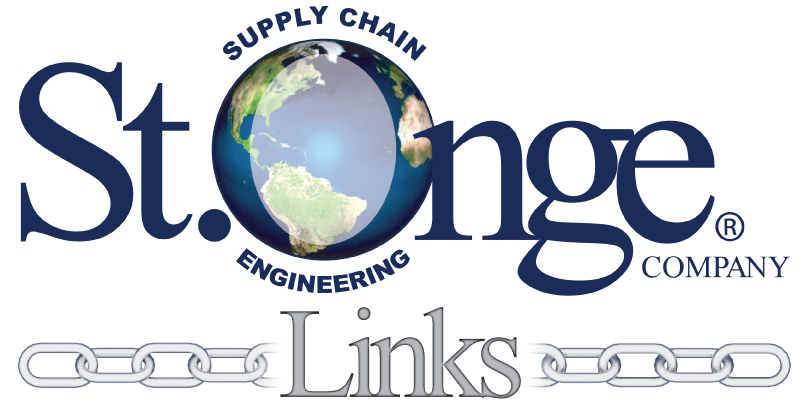 Strengthening your supply chain one link at a time.
Strengthening your supply chain one link at a time.
Hello! Welcome! Most importantly, thank you for looking in on the first entry in St. Onge Company’s new blog, Supply Chain LINKS! This is the first of our weekly entries on this little corner of our website where you find a new insight each week that we hope you can take with you to improve your supply chain. We will offer our thoughts and insights from many of our staff, across the spectrum of our experience within our service offerings, bringing the experience of the best of St. Onge Company to you every week. This first week I thought we would share our perspective on of the cornerstones of the value proposition from any consultant partner or trusted advisor—independence.
When we use the word independence here, we mean independence from suppliers of material handling equipment, transportation services, third party warehouse and transportation management, supply chain execution software and any other physical or digital product marketed to aid any link in the supply chain. We passionately maintain our independence from such providers, not because there is anything inherently ‘bad’ in not doing so, but because there is something undeniably valuable to our clients in doing so—objectivity. We have built our logistics engineering consultancy on our ability to provide our clients with objective advice on any aspect of their supply chain. This allows us not to just help them navigate the question of which automated picking solution or new WMS would be best for them, but help them determine if any automation or software system change at all is appropriate. Perhaps there is a greater fiscal advantage in their business to maintaining a lower level of automation if the capital expenditure to automate is too high. Alternately, there may be improvements achievable within their operational methodology that reduce their current costs to a level where the additional savings due to automation are no longer enough to warrant the investment.
The value of this objectively spans the breadth of our service offerings. When we assist a client in designing an improved facility layout and design, we objectively recommend equipment investment (or not) based on the value of that investment. If a client is seeking network optimization to determine the best location, size and mission for their distribution centers, our analytics determine the optimal network cost to support the customer service levels sought by our client. Our focus is on the costs and service levels of the recommended network, not necessarily that network’s affinity for one service provider or another (unless, of course our client requests a solution with such an affinity to a current supplier).
In the spirit of strengthening a link in your own supply chain as you read this, please recognize that we do not mean to say the only way to improve your supply chain is through an objective consultative partner. The key is obtaining transparency from any supply chain partner supplier. When sourcing services from a manufacturer, it is expected that they will recommended and provide the best solution they can from their product offerings. When working with a wholesale integrator, it is expected that they will bring the equipment and/or software that they resell to the solution they offer. But most importantly, the customer should be fully aware of the experience, and potential predispositions and solution limitations such partners carry with them. A manufacturer may not be able to provide equipment that they do not manufacture. An integrator may be reticent to resell equipment they do no already sell or service for reasons both pragmatic and commercial. There is nothing wrong with this approach, but it can be limiting.
If you desire the broadest possible examination of the options for improving any link in your supply chain, it is best to start where all options are possible. If you do not have the in house expertise to survey all the possible options for improvement, or wish to ensure you leave no stone unturned, an independent trusted advisor will likely serve your best interest. In the end, you will still end up working with the best manufacturers, integrators or software providers suited to provide the best solution for you, if that is what is best for your supply chain improvement. To determine that, ensure your guide and partner is not posing questions to which they may have already determined the answer, but asking questions to discover the answers that will strengthen any or all of the links in your supply chain.
Like this article? Subscribe to our blogs: